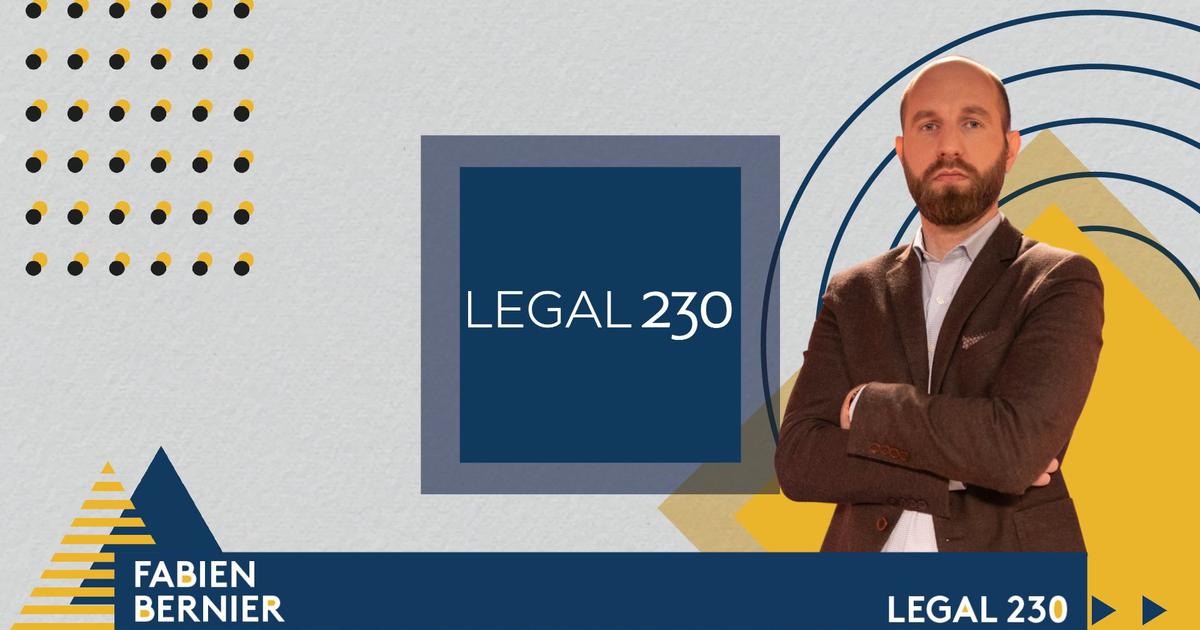Fabien Bernier, co-founder of LEGAL 230, a company specializing in this field and working on behalf of more than 400 law firms, examines the implications of integrating artificial intelligence into legal translation.
The genesis of LEGAL 230: a response to the upheavals in the translation market
As we begin our interview with Fabien, we first seek to understand the needs he has identified from the market to justify the creation of an agency specializing in legal interpretation and translation?
We discover that the market has experienced significant upheavals since 2018, marked by the hiring of less qualified translators, the emergence of tools such as Deepl, and a tendency to favor quantity and speed over the quality of work. .
According to Fabien, there was a clear lack of services meeting the specific needs of legal professionals such as lawyers, in-house lawyers and notaries.
But also, to their requirements.
Going further, Fabien explains to us that from the start they made the bet to offer an offer combining expertise and technology.
The only downside was that they were a little ahead of the market which was not yet quite ready for this type of service.
Then gradually, realizing that this approach allows them to reduce costs while maintaining the same effectiveness and efficiency that they had experienced in the past, the firms were convinced of the value of the proposition.
A few years later, the success of LEGAL 230 confirms that the proposition is a winner: the company supports more than 400 law firms, including the largest business law firms in the world.
The indissoluble marriage of artificial intelligence and human expertise
This technology used by LEGAL 230 is none other than artificial intelligence (AI).
According to Fabien, artificial intelligence makes it possible to go much faster and is even capable of detecting its own errors when combined with other AI.
LEGAL 230 thus trained neural machines with legal texts in different languages, enriched with their translations, lexicons established by jurists and linguists, as well as lawyers.
AI plays a vital role in LEGAL 230's services, but they can't let it act alone.
The most popular artificial intelligences on the market, such as ChatGPT, continue to make many mistakes.
A striking example is that reported by the New York Times, of a New York lawyer having filed a brief with the court citing judicial decisions which simply never existed.
His colleague in charge of writing the dissertation, and who had nevertheless built a solid reputation throughout his career, had actually used ChatGPT to write it.
When working with legal professionals, the stakes are often high, whether reputational or financial, especially when documents involve sums reaching hundreds of thousands or even millions of euros.
“
We do not deliver any translation directly from our AI solution, because AI does not guarantee the absence of errors, quite the contrary
,” Fabien tells us.
This is where the expertise of linguists comes into play who not only understand the intricacies of the language and will translate it accurately, but who also grasp the nuances of the law through their legal background.
“
We have built a network of 1,500 translators, working together in nearly 230 languages, and who have been selected for their expertise in one or more areas of law.
Among them are former lawyers who have chosen to retrain in translation, as well as sworn translators specializing in the legal field.
So, if we are working on a litigation matter, the project will be assigned to one of our litigation experts.
If the case relates to employment law, we assign it to an employment law expert.
», adds Fabien.
Profiles that prove essential, as the legal field sometimes requires specific certifications for translations used in court or in a legal context.
AI legal translation in a world of sensitive data
While translators may be subject to professional secrecy, AI is not yet subject to it.
How then can we guarantee data confidentiality when using AI?
“Data is truly the most crucial element in all professions today.
From the beginning, we have made data privacy a fundamental pillar at LEGAL 230. We conclude confidentiality agreements with our clients, and our translators also sign confidentiality agreements.
As for the data fed into the AI, all documents and information are anonymized, and no data is retained.
We strictly comply with the GDPR.
Moreover, we have an internal DPO (Data Protection Officer) responsible for ensuring compliance.
In addition, all data is hosted on an infrastructure meeting the ISO standard, which encompasses numerous criteria relating to data security and confidentiality, thus ensuring optimal protection
,” Fabien answers.
Where are we today in terms of the use and reliance on translation services?
Fabien confirms our assumption: all LEGAL 230 customers already use machine translation tools.
But they usually do it for everyday, unofficial exchanges, such as emails, or to check terms.
“
However, when it comes to committing considerable sums, often hundreds of thousands of euros or more, on behalf of their clients, who are often Legal Departments, they must call on certified translators and experienced.
We truly act as a guarantee of security for lawyers and their end clients
. ”
In a context where pressure for rapid execution coexists with increasingly strict regulations around data security and compliance, the combination of human expertise with advances in artificial intelligence in the field of legal translation, appears to be an indissoluble marriage.
The solution as proposed by LEGAL 230 represents a global and secure solution to meet the specific requirements of legal professionals.
So many specificities requiring scrupulous attention to the precision, confidentiality and reliability of translations, adjusting themselves to constantly changing national and international laws.

